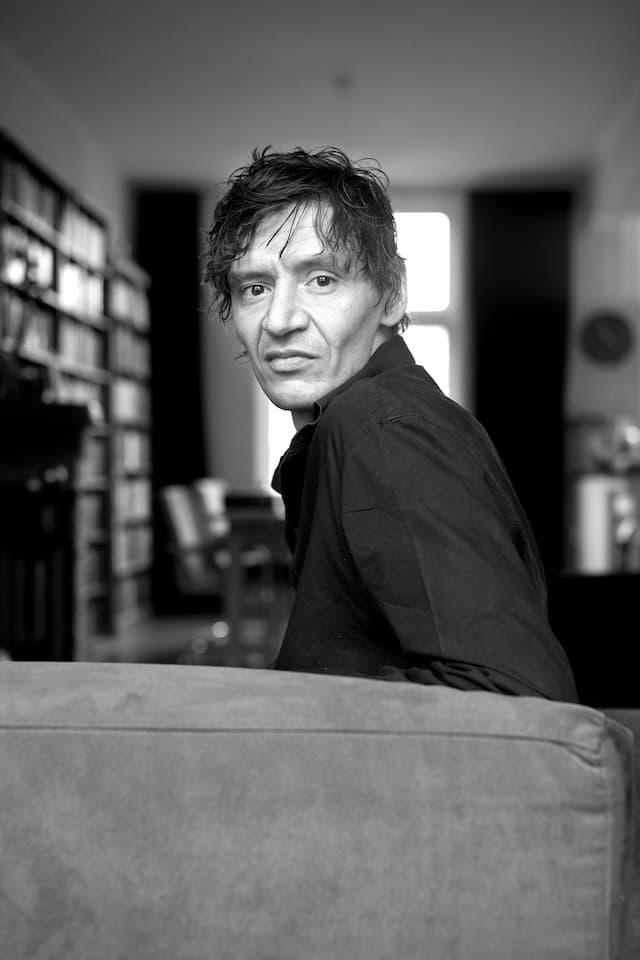Otmar’s Sons
Peter Buwalda is the most successful newcomer to Dutch literature in the past decade. His debut novel, 'Bonita Avenue' (2010), broke all sales records, received many prizes and nominations and was translated into many languages. Now, the long-awaited sequel has arrived: the first instalment in an ambitious trilogy.

‘For a hefty fee, psychiatrists would call it a search for the father, but that’s not what’s going on here,’ opens Otmar’s Sons. Ironically, the opposite is true: this is the story of a man searching for his father. Protagonist Ludwig is travelling to the Siberian peninsula of Sakhalin as a Shell employee. He’s mostly biding his time, waiting for his appointment with Johan Tromp, CEO of Sakhalin Energy, whom he considers to be his biological father, the man who abandoned him while he was still in the womb.
Otmar’s Sons takes place thirteen years after Bonita Avenue. The story is told from three perspectives: that of Ludwig Smit, Isabelle Orthel and Johan (Hans) Tromp. Isabelle, who previously brought down rector magnificus Siem Sigerius, targets new male victims with elegant fury. First, she goes after her patriarchal grandfather, and after that little warm-up, she starts hunting down the amoral Johan Tromp. Her ruthless quest for revenge, disguised as investigative journalism but aimed at emasculation, could be seen in a feminist light.
It’s not by chance that one of the novel’s motto’s comes from Andrea Dworkin: ‘The symbols of terror are commonplace and utterly familiar: the gun, the knife, the bomb, the fist, and so on. Even more significant is the hidden symbol of terror, the penis.’ This goes beyond the father-son competition between Ludwig and Hans, in which the failed son, with his premature ejaculation, proves to be no match for his masculine tyrant of a father - the supreme god whom a Russian assistant accidentally refers to as ‘Trump’.
In Bonita Avenue, a father is ruined by his rotten offspring; in Otmar’s Sons the offspring turn against the almighty fathers. Isabelle, the most transgressive figure to date, seems to go the farthest. As an adopted child, she has no blood ties with her new family, which, in Buwalda’s universe, is a sign of strength and sovereignty.
Irresistible. Morbid issues described in a cheerful, boyish and bold style; that contradiction is what makes this a masterpiece.
De Groene Amsterdammer
Incredibly gripping, technically superb and intriguing. A narrative treasure.
NRC Handelsblad
